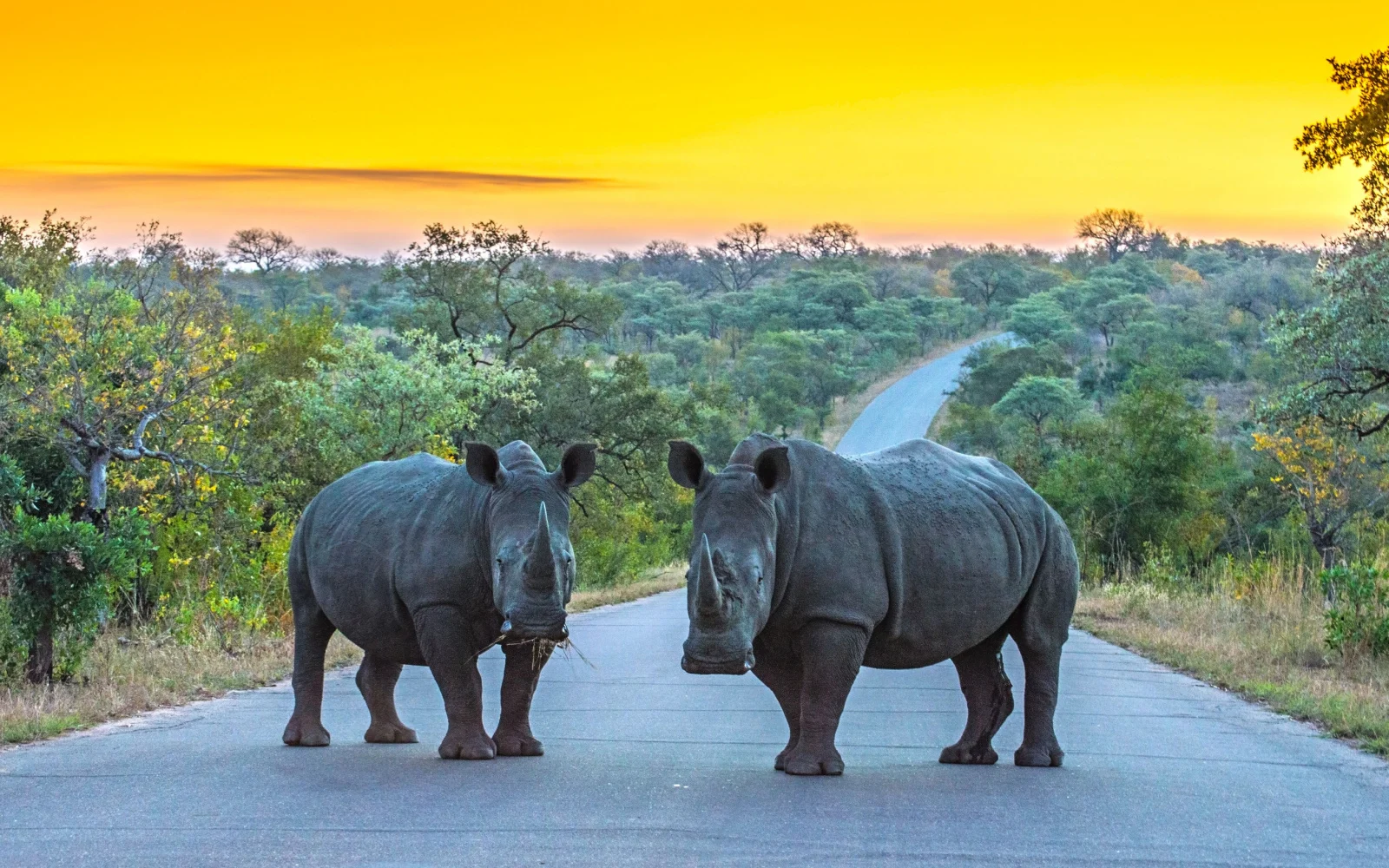What's the best time to visit Kruger National Park?
The best time to visit Kruger National Park is from April to October, the dry season, when cooler temperatures and less vegetation enhance wildlife viewing. Animals are drawn to watering holes, significantly improving chances of spotting them.
Additionally, the lower risk of malaria during these months makes for a safer visit. This period, characterized by warm days and minimal rainfall, offers an ideal setting for experiencing Kruger’s diverse animal life and beautiful landscapes.
Kruger National Park is one of the best places to visit in the world for animal lovers. This jewel in the South African parks system is one of the best places in the world to go on safari.
Visitors to Kruger National Park have a good chance of spotting the “big five,” the animals most African safari visitors want to see—lions, leopards, elephants, rhinoceroses and African buffalo. Besides these animals, Kruger is also home to hyenas, hippos, and many bird species.
The natural landscape, full of twisting baobab trees, historic ruins, and spectacular opportunities to view the night sky, is also worth a visit. We’ll show you the best time to visit to see all the park has to offer.
Overall Best Time to Visit Kruger National Park
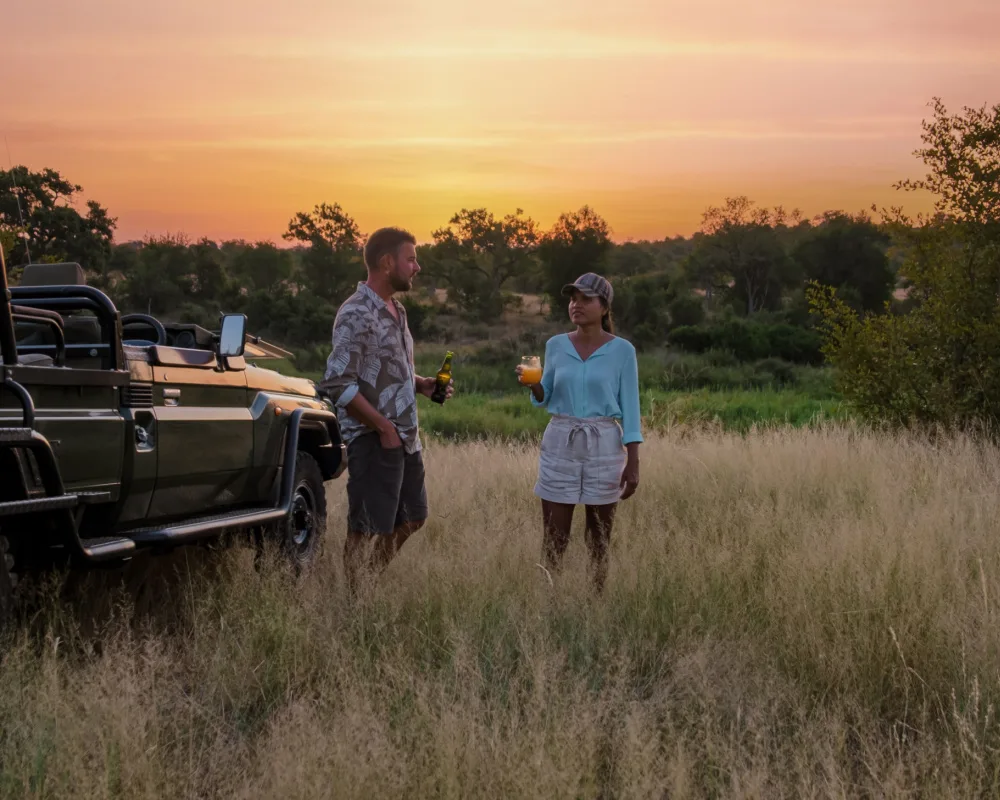
Fokke Baarssen/Shutterstock
The best time to visit Kruger National Park is during the dry season, from April to October, when spotting animals is easier. Kruger National Park is located in a part of South Africa with a subtropical climate, which means that its precipitation levels vary widely from season to season.
It has a distinct wet and dry season. The dry season coincides with autumn (end of March to early June) and winter (June to mid-September), before bleeding into early spring.
During the dry season, temperatures tend to be cool and pleasant. In the winter (June-August), expect daily temperatures of around 62 degrees Fahrenheit (17 degrees Celsius). At night, temperatures drop, so be sure to dress warmly.
At the beginning and end of the dry season, temperatures are warmer, in the low 70s (about 20-23 degrees Celsius). The pleasant temperature combined with the dry climate makes for the best weather for exploring the park.
You have a very low chance of getting rained on, and most days are sunny and bright, meaning you won’t feel uncomfortable on a game drive, even in an open truck. Plus, during the dry season, malaria-carrying mosquitoes are dormant, so you are far less likely to be stung.
The real benefit of the weather is the fact that animals are more likely to be active during this period. The official Kruger National Park site recommends visiting during the dry season for better opportunities to spot animals.
During the dry season, the vegetation, or bushveld, in the park dries out. This may make for uglier photos since the trees are brown instead of green, but it means that the animals have fewer grasses and trees in which to hide.
Dry weather also forces animals to migrate closer to the watering holes in the park, so rangers know exactly where to find animals.
Instead of searching for elephants or lions through the park, you’ll be able to go straight to a watering hole and see these majestic animals clustered around the water. Plus, the rangers will be able to track elusive animals on the dry ground, meaning you’re more likely to spot even shyer species such as leopards.
Cheapest Time to Visit Kruger National Park
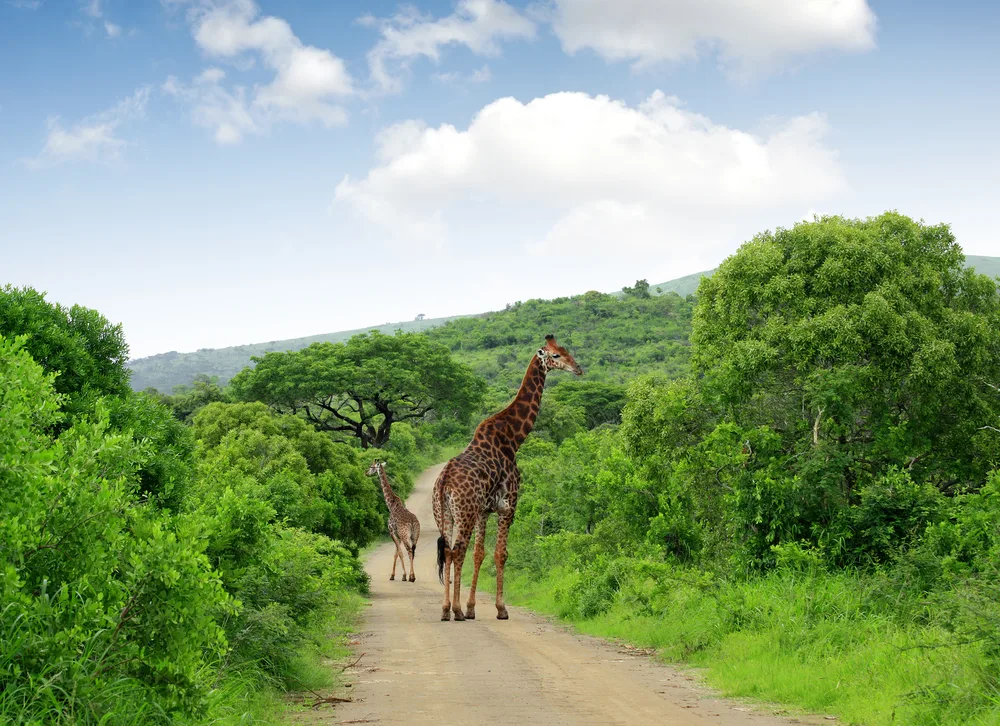
Jaroslava V/Shutterstock
The cheapest times to visit Kruger National Park are at the very beginning and very end of the rainy season, in November or from late January to mid-February.
If your goal is to save money when visiting Kruger National Park, the most important thing to do is to avoid major holidays. Kruger is a popular destination for international visitors in December due to Christmas and New Year’s holidays.
South African schoolchildren are on vacation from mid-December to mid-January, so the park tends to fill up with local families (also around Easter and the end of April).
If you visit outside of these popular holidays during the rainy season, accommodation options tend to cost less. Even high-end lodges tend to offer discounts of up to 25% to fill up their occupancy rates.
November tends to have the steepest discounts, but you can also find good deals at the end of January. If you are flying to South Africa from the Northern Hemisphere, the least expensive time to fly tends to be between late January and early April.
Avoid major holidays, and be sure to compare prices on airlines. If you are flexible with your dates, you have a higher chance of scoring a good deal.
Least Busy Time to Visit Kruger National Park
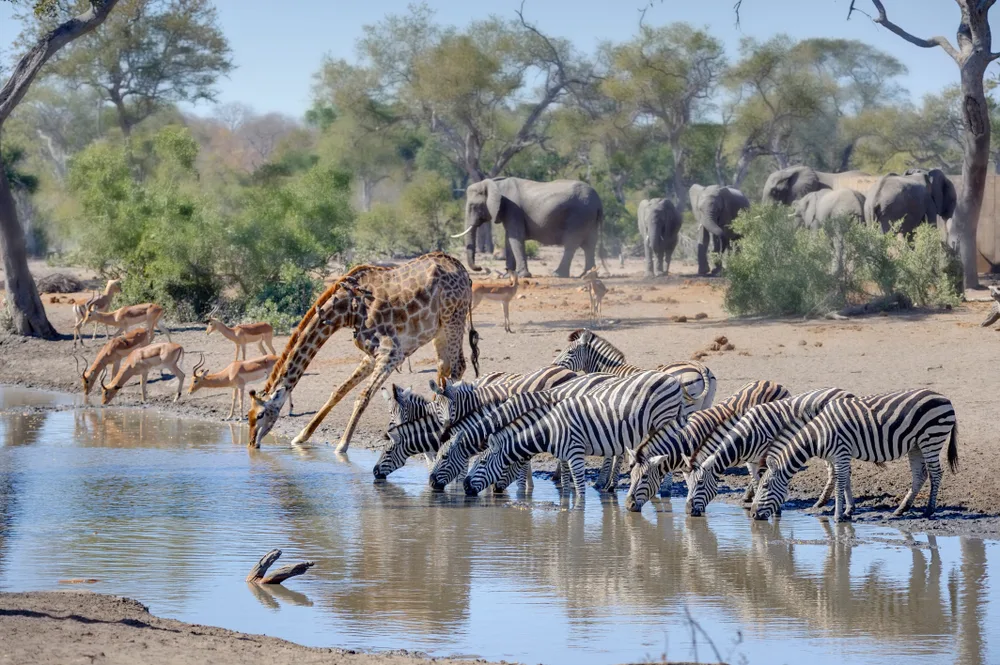
Wolf Avni/Shutterstock
The least busy time to visit Kruger National Park is in November or at the end of the rainy season, from late January into mid-March.
Kruger National Park receives fewer visitors during the rainy season than during the dry season because international visitors think it’s a worse time to go on safari. It’s true that you have a higher chance of getting caught in the rain, and that the lush vegetation makes it harder to spot animals.
However, visiting during this time has its benefits. Between November and April, you are more likely to spot baby animals, such as little impalas, since the rainy season is also calving season.
The rainy season is also the best time to come visit and see migrating birds, who fill the park during South Africa’s summer by the thousands. The relative solitude is also a big reason to come during this time.
Rather than hearing the sound of dozens of cameras clicking, you’ll only hear the sounds of the animals and the bush around you. During the peak season, visitors tend to crowd popular viewing sites, but during the off-season, it’s just you and the animals.
During the rainy season, which coincides with South Africa’s summer, the gates are open the longest. In November, December, January, and February, you can enter the park at 5:30 in the morning and stay until 6:30 pm. That gives you more time to spot the amazing animals.
Worst Time to Visit Kruger National Park
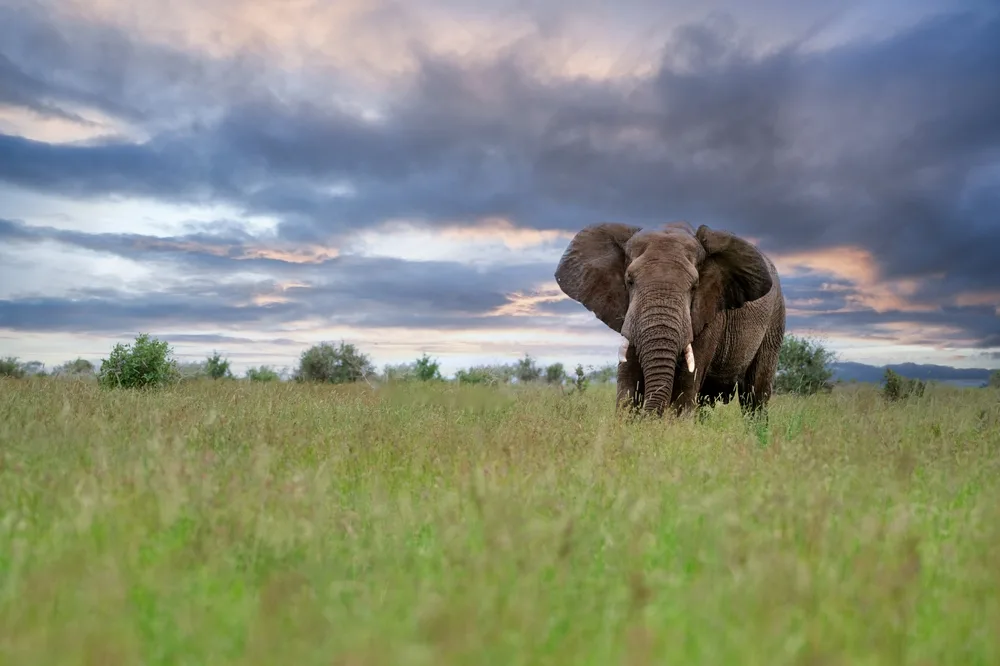
Cobus Naude/Shutterstock
The worst time to visit Kruger National Park is between mid-December and mid-January, when the worst of the rainy season weather affects the park, and it is at its most crowded.
The rainiest months in Kruger National Park are December, January, and February. The park receives near-daily torrential downpours, meaning that you’ll get soaked on game drives.
The heavy rains make parts of the park impassable since the roads get flooded or turned to mud. Even when it isn’t raining, the weather is hot and humid. The rainy season also brings out the mosquitoes, who are more than just a nuisance.
Kruger National Park lies in a malarial area, and you can get seriously ill if you get stung by a malaria-carrying mosquito.
You’ll have to take serious precautions to protect yourself. December and early January don’t even have the main benefit of visiting during the rainy season, which is that you get to avoid the crowds.
This is when South African school kids are on break, and many families use this time to go on vacation. Expect crowded lodges and many other people around as you go on your soggy game drives.
Frequently Asked Questions
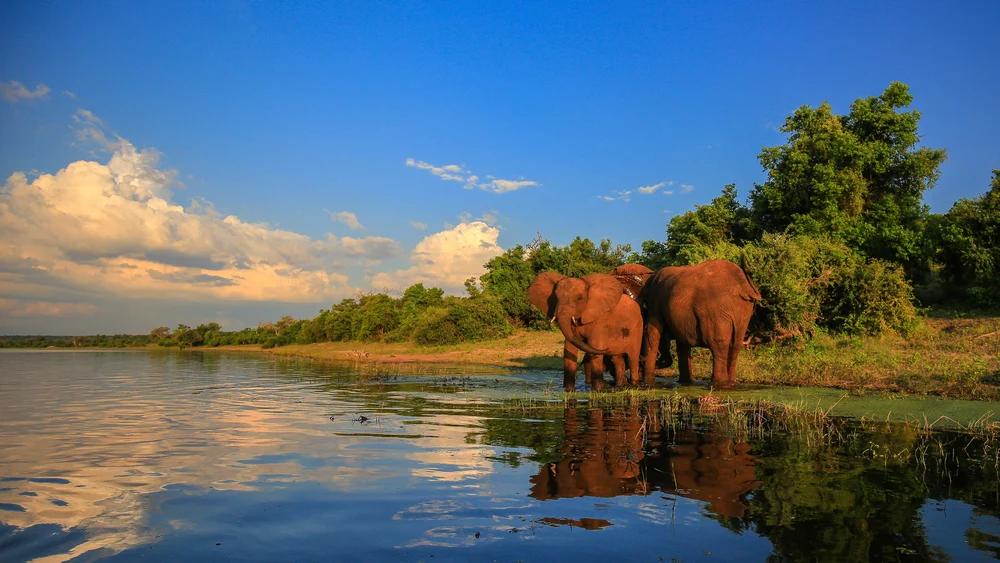
These are some of the most common questions people ask about finding the best time to visit Kruger National Park:
Which month is best for Kruger National Park?
The best months to visit are May and October, at the beginning and end of the dry season, when the weather is best for wildlife spotting.
Which season is best for safari in Kruger?
Dry season is the best season for a safari in Kruger because you have the highest likelihood of spotting animals.
What is the hottest month in Kruger National Park?
January is the hottest month in Kruger National Park, and it is also very humid, making game drives rather unpleasant.
When is the best time to visit South Africa?
The dry winter, May to September, is also a good time to visit the rest of South Africa thanks to the pleasant weather.
So, What’s the Best Time to Visit Kruger National Park?
For the best safari experience, visit Kruger National Park during the dry season, between April and October. The park is a great destination all-year-round, it just depends on your budget and what you want to see.



